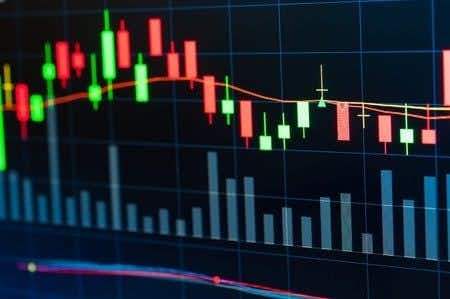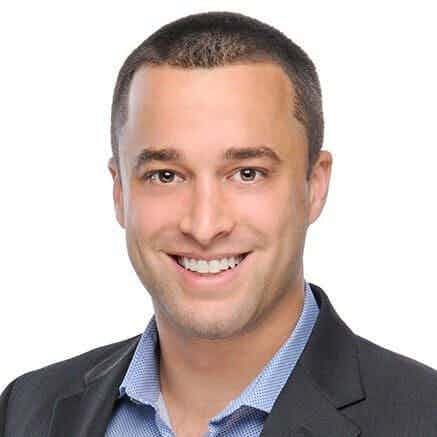Case: In re Northfield Labs., Inc. Sec. Litig., 267 F.R.D. 536 (N.D. Ill. 2010)
Background:
Defendant Northfield was founded in 1985 by defendants DeWoskin and Gould. Northfield’s primary purpose was to research and develop a hemoglobin-based blood substitute called PolyHeme to treat life-threatening blood loss. PolyHeme was a hemoglobin-based, oxygen-carrying blood substitute that was compatible with all blood types. Northfield manufactured PolyHeme by extracting hemoglobin molecules from outdated human blood, chemically modifying the hemoglobin into a polymerized form of hemoglobin and incorporating the polymerized hemoglobin into a solution, which could then be administered to humans. Northfield was never able to bring PolyHeme to market, and the company declared bankruptcy on June 1, 2009. Defendant DeWoskin served as Chairman and CEO from 1985 to July 2002. Defendant Gould took over as Northfield’s Chairman and CEO in July 2002.
The Court previously concluded that plaintiffs had stated a claim against defendants for securities fraud. First, plaintiffs alleged that after Northfield had closed a clinical trial due to allegedly negative results, defendants stated, on August 3, 2001, that they intended to close the trial. Second, plaintiffs alleged that defendants, in Northfield’s August 9, 2002 10-K filing (and in its 2003 and 2004 10-K filings), misstated the reason why the clinical study was stopped. Third, plaintiffs alleged that on October 11, 2001, Gould made a misstatement when he stated “no evidence of blood vessel constriction, or renal, pancreatic, gastrointestinal or cardiac dysfunction” were observed in a clinical trial even though cardiac dysfunction was observed. Fourth, plaintiffs alleged that a September 4, 2001 press release contained misstatements about clinical trial results. Fifth, plaintiffs alleged that defendants included misstatements in an August 3, 2001 proxy statement when they said “none of the adverse effects historically associated with other hemoglobin solutions have been identified by our clinical studies” when in fact, plaintiffs alleged, cardiac events were not only present but historically associated with hemoglobin solutions.
Expert Witness:
Plaintiffs argued that the trading volume of Northfield shares during the class period (March 2001 to March 2006) was high and that, therefore, the market for Northfield shares was efficient. In support, plaintiffs supplied a chart of the number of Northfield shares traded on each trading day of the class period. Plaintiffs also offered the expert opinion of Scott D. Hakala, Ph.D, (“Dr. Hakala”) who opined that the average daily trading volume of Northfield shares during the class period was 183,000 shares, or 1.8% of all outstanding shares.
Dr. Hakala earned a Ph.D. in Economics from the University of Minnesota in 1989. He specialized as an economist in monetary/macro theory, financial economics (including valuation theory), and international finance. He is a Chartered Financial Analyst (CFA-awarded by the CFA Institute)-the most difficult to obtain and premier designation for the financial advisory and valuation profession. As a valuation consultant and economist, he has worked on over 2000 assignments involving the valuation of businesses and business interests over the past 20 years. Dr. Hakala has specialized in more complex valuation assignments involving the valuation of intellectual property (four significant jury awards based on his testimony), intercompany transfer pricing (US Tax Court decision), valuation of early stage companies, allocation of purchase price and asset impairment analyses, fairness analyses for proposed and completed transactions, valuation for secured lending, valuation of companies in financial distress, and valuation of derivative securities for financial reporting and other purposes.
Daubert Challenge:
The Defendants challenged the expert testimony on the basis that it did not assist a jurying understanding the facts of the case, and that the methodology used by the expert was not reliable.
Conclusion:
The Court first noted that a factfinder, when faced with a list of the number of shares traded on each trading day during the class period, did not need the assistance of an expert when considering whether trading volume in Northfield shares was high or low. The math was very simple. The Court also noted that the methodology used by Dr. Hakala when calculating the trading volume was suspect. Dr. Hakala did not calculate the average daily trading volume for the various months or even the various years within the class period. Instead, Dr. Hakala made one calculation of average trading volume over the entire five-year class period. Dr. Hakala’s calculation disguised both (1) the low average daily trading volume in 2001, 2002 and 2003; and (2) the significant increase of average daily trading volume over the course of the class period. In April 2001, just after the start of the class period, average daily trading volume was fewer than 30,000 shares, or .21% of the outstanding shares. On many days in 2001, fewer than 10,000 of the more than 14,262,000 outstanding shares exchanged hands. A year later, in April 2002, average daily trading volume was up slightly to .26% per day. By April 2003, average daily trading volume was up to .75% of outstanding shares. It was not until February 2004 that trading volume was regularly above 100,000 shares per day. In April 2004, average daily trading volume was 2.4% of shares, and in April 2005, average daily trading volume was 2.3% of outstanding shares.
The Court concluded that trading volume did not indicate that Northfield shares traded in an efficient market over the course of the class period. Although it appeared that the average daily trading volume in the last years of the class period was sufficiently high to suggest an efficient market, the volume in the first years was too low to be considered evidence that Northfield shares traded in an efficient market.
As the Court explained, the best evidence of an efficient market is empirical evidence that a share price quickly changes to reflect new information. In support of their claim that Northfield shares traded in an efficient market during the class period, plaintiffs offered the opinion of Dr. Hakala, who performed an event study and concluded:
“[p]erception of positive drug trial results and related news of potential market approval of PolyHeme led to significant relative increases in Northfield Laboratories’ share price before and during the Class Period on August 16, 2001; March 6, 2003; June 12, 2003; February 23, 2004; April 11, 2005; and November 15, 2005. By contrast, fears of negative trial results and safety concerns led to significant relative declines in Northfield Laboratories’ share price during and immediately after the Class Period on November 20, 2001, January 6, 2006, February 22 to 24, 2006, and March 10 and 14, 2006.”
Looking for a securities expert witness? Click here to find a vetted and screened expert.
An event study is a regression analysis designed to examine the effect of an event–news about a company–on a dependant variable–the company’s share price. The purpose of an event study is to determine whether the price of a share of a company’s stock reacts quickly to new information. A valid event study attempts to control for a stock’s usual volatility and to control for general movements of price within an industry.
Defendants argued that Dr. Hakala’s event study iwa unreliable, because Dr. Hakala made decisions about that study that tend to skew it toward a conclusion that the market was efficient. For example, defendants argued that Dr. Hakala’s excessive use of dummy variables understates the usual volatility of the stock, which has the effect of making it appear that news had a greater affect on price than it actually had. The Court agreed with defendants. Generally, in an event study, the author of the study attempts to determine the usual volatility of the stock by excluding a few key dates on which the stock price is expected to react to news. For example, the author would exclude (from the calculation of the stock’s usual volatility) the four dates of the year when the company issued its quarterly earnings, because on those dates, the share price is expected to change based on new information.
In Dr. Hakala’s study, instead of excluding a few dates, he excluded 117 event dates. In addition, defendants pointed out that Dr. Hakala excluded all dates on which he could find any news about Northfield, even if the news was not new. The defendants showed that the effect of Dr. Hakala’s selection of so many event dates was to reduce the expected level of volatility to 3.66% from 4.09%, which had the corresponding effect of making it appear as though the release of news had a greater impact on share price than it actually had. The Court found this method to be unreliable and excluded Dr. Hakala’s report.
About the author
Jared Firestone, J.D.
Jared Firestone, J.D., is a multi-disciplinary attorney with expertise in a range of legal areas. He founded and operated Firestone Law Firm PA in Hollywood, Florida, and worked as an Associate Attorney at Gustman Law P.C. in New York. His practice areas include Personal Injury, Criminal Defense, Medical Malpractice, Trusts & Wills, Civil and Commercial Litigation, Family Law, Real Estate, and Immigration. Additionally, he has experience in real estate, focusing on residential property in the Miami/Fort Lauderdale areas. Firestone also served as a pro bono Mediator at the Benjamin N. Cardozo School of Law Divorce Mediation Clinic. He holds a J.D. from Cardozo School of Law, where he honed skills in E-Discovery, Divorce Mediation, and Legal Writing, and a Bachelor’s degree in Philosophy from Tulane University.



